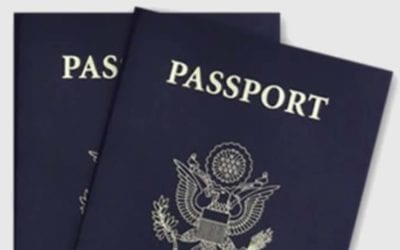
Washington, DC, is buzzing during these dog days of summer. With temperatures rising above 100 degrees and the humidity oppressive, the gears of government grind on. The governmental grinding these days is not very pleasing.
Negotiations on the increase of the debt ceiling has become about as politicized as it comes and the two political parties are so entrenched against each other that even issues that are losing tens of millions of dollars every week and putting thousands of American in the unemployment lines are not being settled.
Specifically, the FAA bill extension was not passed last week. It has meant that the government cannot collect something like $200 million in taxes and surcharges every week. The FAA funding mandate expired last Friday night (Aug. 22) and since then it is estimated that the government has already lost $150 million.
Plus, some 4,000 FAA workers have been furloughed and by some claims 70,000 construction workers employed on airport projects across the country have been laid off.
All this, because the Republicans and Democrats are in a fight over bureaucratic process — a process that might have cost around $14 million overall over the next year. This battle in Washington over the FAA is worse than any sandbox fight in kindergarten. This one has real consequences.
Early last week, the Republicans took action to cut spending by around $14 million in the 21st extension of the FAA bill and dared the Democrats to vote it down and shut down part of the FAA in order to save face. The Democrats did just that. They declined to include the $14 million in savings in the FAA extension, thus shutting down the construction and airport improvements funds of the FAA — estimated at around $30 million a day.
Nevermind, that the Democrats had earlier already voted in favor of cutting exactly the same small airport services that the Republicans called for cutting in their FAA bill extension. (Perhaps, their vote may not have been something that they really backed.)
We find ourselves in a situation where the Republican-controlled House Committee on Transportation and Infrastructure has stuck its bureaucratic finger into the eye of the Democrat-controlled Senate Commerce, Science, and Transportation Committee. Now the Chairman of the Senate Commerce Committee is pouting and won’t do anything unless the Republicans back off.
The Republican House Committee Chairman isn’t backing down. His statements decry the Senate Committee inaction as crazy, since it will cost far more than the $14 million in question.
Neither side seems to want to cry, “Uncle.” In the meantime, this spat over $14 million in budget cuts is costing the economy tens of thousands of jobs and the government around $30 million a day in revenues for airport and airtraffic funding.
This is not a pretty picture and I’m not sure what the solution is. Even staffers, on both sides of the aisle, I speak with are not optimistic.
The Senate can man up and say, “Fine we’ll sign the House extension, but you’d better watch out when you want something in the future.” Or, the House can say, “We’ll be the good guys and pull out the savings of $14 million in the extension because your crazy Senate actions have already cost more than 10 times that amount.”
The Democrats want another clean extension, just like most of the previous 20 extensions. The Republicans want to move the ball forward by at least getting the elimination of, or limits on, some Essential Airline Service language. Both can’t believe the the other’s reluctance to pass the extension.
In the meantime, as the two camps take turns shooting spitballs at each other, the country’s airports are losing around $30 million a day and the unemployment rolls have increased by tens of thousands. This makes absolutely no sense.
Worse yet, both sides are digging into their respective side of the Congressional sandbox and may be settling into a protracted battle over this $14-or-so million being cut in the Essential Air Services program that could easily cost more than a billion dollars if it is allowed to continue until after the August recess. (Not to mention even more millions that will be spent for unemployment benefits for those laid off by this non-negotiation travesty.)
In the meantime, the airlines are licking their financial chops. Rather than cutting their airfares the same amount as the lost 7.5 percent air transport excise tax and the $3.70 domestic segment fees, most airlines have been pocketing the $30 million a day. From their point of view, the longer this sandbox fight goes on, the better. A billion in unforeseen revenues seems mighty attractive.
Too bad the taxpayers are losing twice in this spat. We don’t get the tax savings and we are paying again for economic damage being done by the layoffs and more delays in airport and air traffic projects.
Photo: www.televisionbroadcast.com

Charlie Leocha is the President of Travelers United. He has been working in Washington, DC, for the past 14 years with Congress, the Department of Transportation, and industry stakeholders on travel issues. He was the first consumer representative to the Advisory Committee for Aviation Consumer Protections appointed by the Secretary of Transportation from 2012 through 2018.


